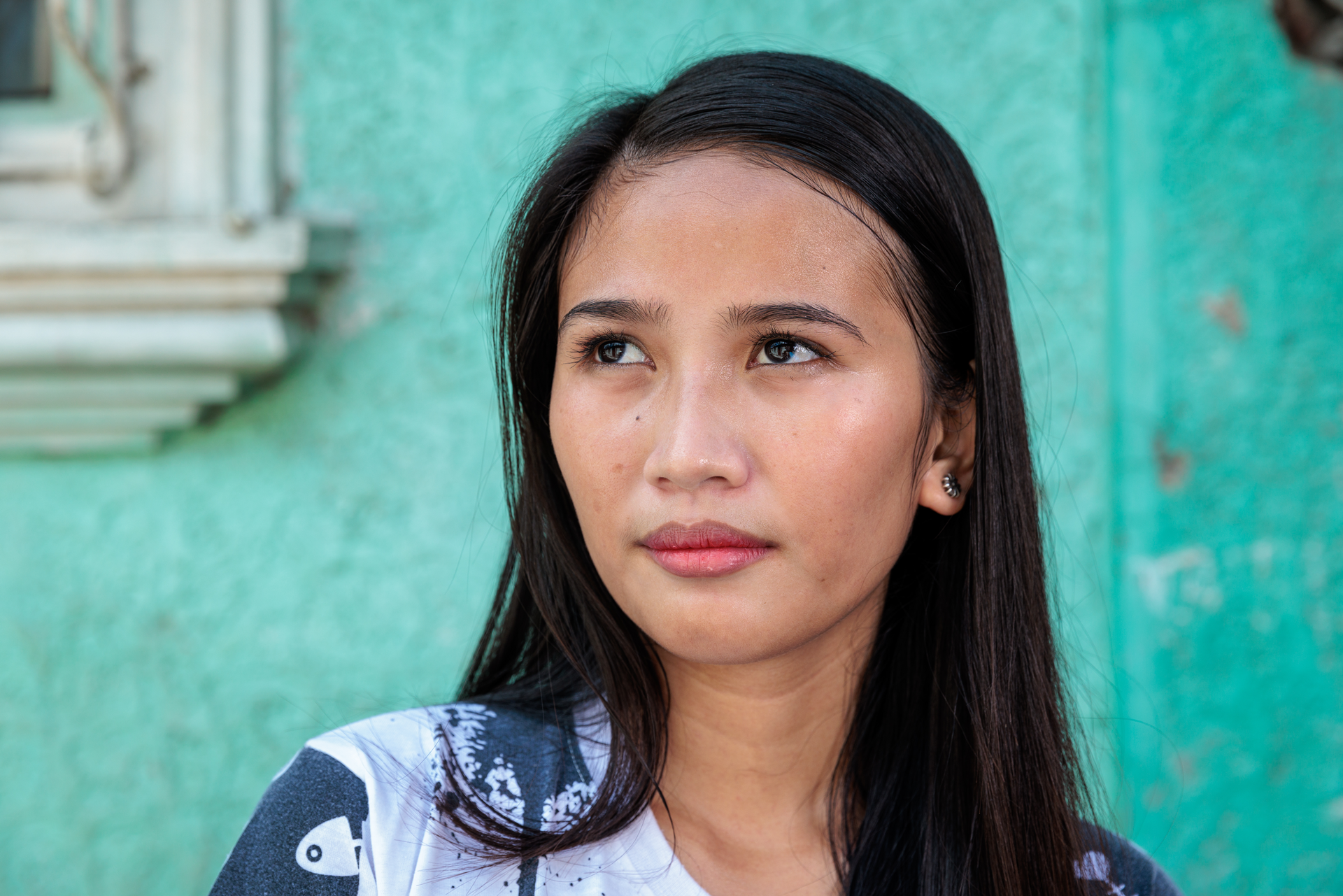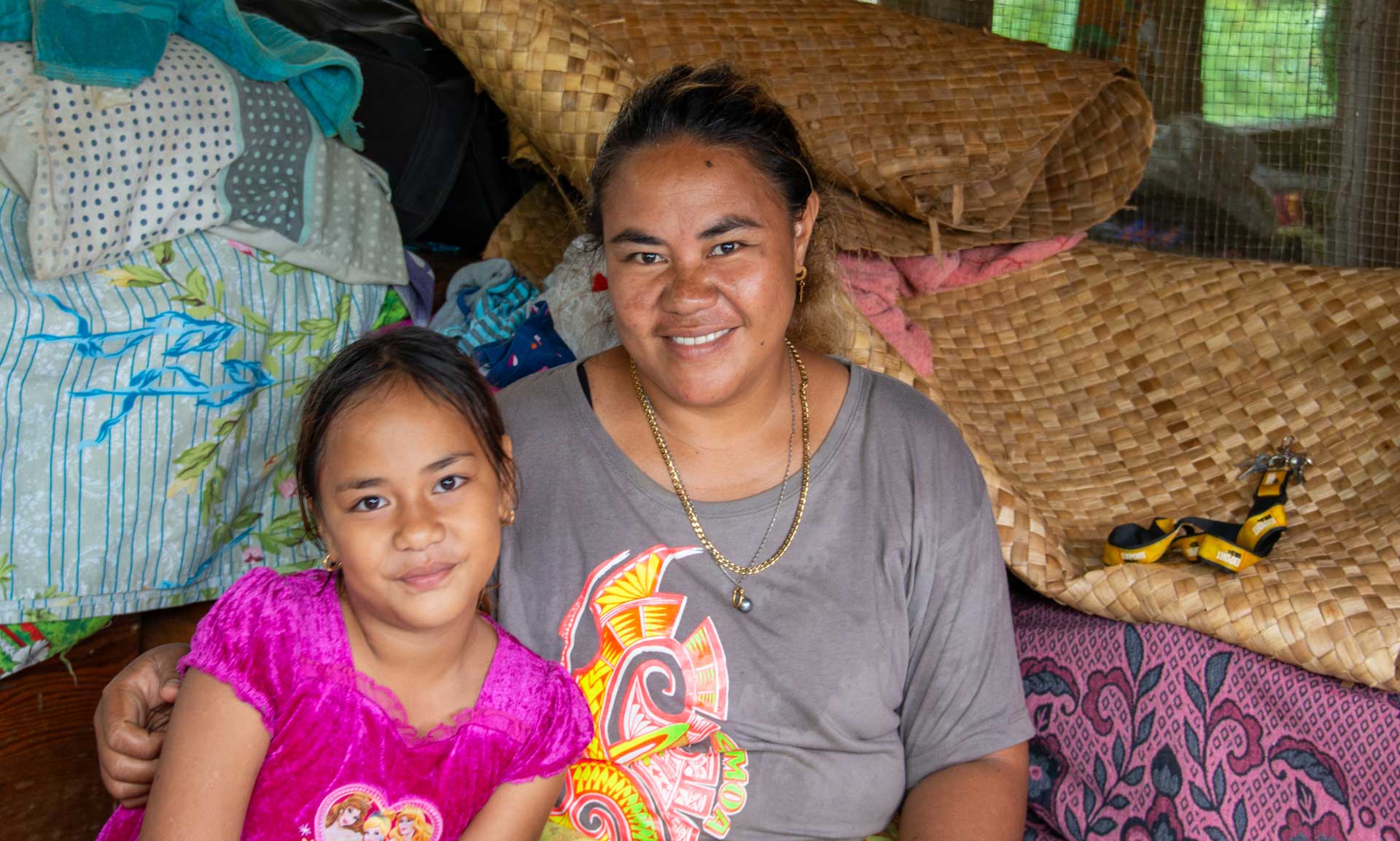Blazing the trail for the next generation of women in Malawi
Economic opportunities for young women in Malawi are constrained by high levels of early school dropouts and women typically tend to work in lower paying jobs or stay at home. Memory's conviction meant she was able to break this generational cycle.

Memory with her former teacher who taught her carpentry at a technical college in Blantyre, Malawi. Photo: Tim Lam/Caritas Australia
Skills training has the power to help young women break the cycle of poverty
That is why the support of people like you is crucial in helping people like Memory and other women in her community to develop the technical skills they need to gain employment opportunities. Your support has the power to change lives and can help support activities such as tuition and boarding fees, so that young women can attend training courses and gain the qualifications and knowledge they need to become financially independent.
In the face of adversity, people do not lose their capability - they lose their resources and their ability to create meaningful, enduring change for themselves. You can be there for these people, standing alongside them in empathy and understanding, putting your compassion into action by helping provide access to what they have lost and helping them build a better future.
You can be a partner in their solution. A partner in compassion.
With more than 70% of the population living in poverty, many women from rural communities simply do not have the financial means to access vocational training courses.
See how the support of people like you helped Memory study carpentry at a technical college.
Breaking barriers through vocational training
Your support today can help fund programs like the A+ program in Malawi, run in partnership with our partner CADECOM. Through the program, young people like Memory can learn technical skills in areas such as carpentry, tailoring and welding.
“In the rural setting, sometimes even when students get college education, jobs are not easy to come by. But when you give them vocational skills, then they're able to use that skill to employ themselves, to become entrepreneurs, to open up small businesses," said CADECOM Diocesan Secretary in the Archdiocese of Blantyre, Mandinda Zungu,
"This is what we did with the training courses that we do as CADECOM, where we give the youth the choice to choose which vocational skill they want to do. By using the strength-based approach, we support communities to identify their own strengths to change their lives."
In addition to vocational skills training for young people, the program also supports families by improving food security, access to basic water and sanitation, women’s income generation. Since 2016, the program has supported 7,397 families (33,287 people).

A carpentry student attending technical college in Blantyre, Malawi. Photo: Tim Lam/Caritas Australia
The program will soon enter a new phase – the A+ Successor program – and will help an estimated 10,184 households (56,096 people) over the next 5 years. The support of people like you is crucial in helping ensure the program can reach the most marginalised families in Malawi.
Donate Today“If I didn’t have this opportunity, I would maybe be married now with two or three children and just rely on my husband. Nowadays, you need to stand on your own so that your husband can also assist you.”

Did you know that nearly 70 percent of the population in Malawi live on less than USD $2.15 a day?

Memory (centre) with her parents, Lector and Lute, and siblings in their village in Mwanza district, southern Malawi. Photo: Tim Lam/Caritas Australia
See how your compassion can make a lasting impact for communities around the world

Ronita is 22 years old and lives in Quezon City, Philippines. Photo: Richard Wainwright/Caritas Australia
Helping mothers in the Philippines go back to school
In the slums of the Philippines, many vulnerable families live in tiny, overcrowded homes. Girls who become pregnant during high school often have to end their education prematurely, which limits their financial independence.
Learn more about how your compassion is helping young mothers access Alternative Learning System classes, to enable them to go back and finish high school.
Improving clean water access in Samoa
In Samoa, many vulnerable families live in makeshift homes built from recycled scraps, with no access to piped water. These families often have to walk long distances to collect water, which is then stored in old refrigerators.
Learn more about how the support of people like you is helping build water tanks for families in Samoa.

Leaia with her daughter live in Samoa. Photo: Laura Womersley/Caritas Australia












